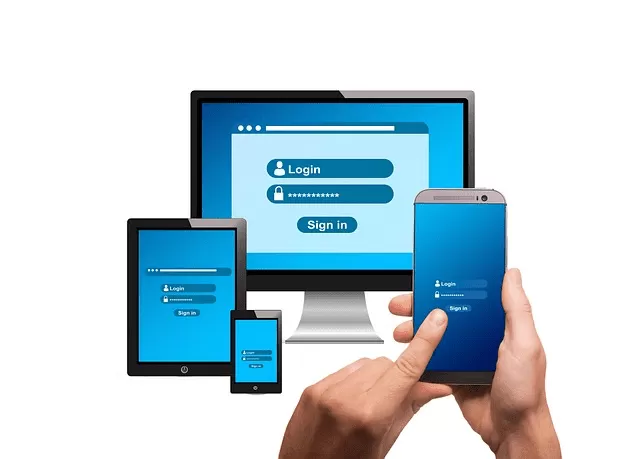Top 10 Hacks You Must Know Before going to Build An App from a Website | Everything You Need to Know | Convertixo
In today’s digitized era, mobile apps are ruling the roost, with their unparalleled ability to offer a seamless and engaging user experience. Whether it’s Android apps or iOS apps, these nifty tools have become a go-to solution for businesses trying to establish a robust presence in the dynamic digital world. As the demand for mobile apps surge, the quest for techniques to build app from a website has significantly amplified.

One such efficient and reliable method is to build an app from a website. This technique is particularly beneficial for businesses that already maintain a well-structured website and wish to branch out their digital presence. Here’s the catch, though – building a mobile app, be it an Android mobile app or an app for iOS mobile devices, is not a walk in the park. It requires a strategic approach, technical acuity, and a deep understanding of the app development process.
This is where Convertixo enters the picture. Convertixo is an innovative app development platform, designed to simplify the process of transforming your website into a fully-functional mobile app. It’s an ideal solution for novices and experts alike, providing an intuitive interface and powerful tools that streamline the app development process.

The best part about Convertixo is that it caters to both Android apps and apps for the Apple App Store. This means you can create a unified presence across all platforms, reaching a broader audience and maximizing your digital impact. Moreover, you can rest assured that the app you build will be fully responsive and compatible with a variety of devices.
Now, while Convertixo does offer a simplified website to an app and development process, there are certain hacks or best practices that can further optimize your experience.
Top 10 Mind-Blowing Techniques:
Throughout this article, we will be sharing these ten mind-blowing techniques with you. Imbibing these tips into your app development strategy can ensure a smoother process and a more successful outcome convert your website. With the help of Convertixo, these tips, and a dash of creativity, you’re all set to create a standout mobile app from your existing website.
So, whether you’re an entrepreneur looking to expand into the mobile app world, a developer seeking efficient new app development techniques, or simply a tech enthusiast keen on learning new things, this guide is for you. Grab your notepads, and let’s dive into the world of web apps and app builders!
Understanding the Basics of Mobile Apps before Building App from a Website
What is a Mobile App?
A mobile app is a software application designed to run on mobile devices such as smartphones and tablets. They serve a variety of purposes, ranging from utility and productivity to entertainment and social networking. Interestingly, the advent of mobile apps has transformed the way people interact with technology, offering a more personalized and convenient user experience.

Mobile Apps: A Closer Look
There are different types of mobile apps, with native apps being one of the most popular. A native app is a smartphone application developed specifically for a mobile operating system (like iOS or Android). It leverages the system’s processing speed and robust features to deliver a seamless, top-notch experience to app users.
iOS App and Android App
When designing mobile apps, one must account for the differences between the two major platforms: iOS and Android. An iOS app is developed using languages such as Swift and Objective-C and adheres to Apple’s design guidelines, ensuring a consistent user experience across all iOS devices. On the other hand, an Android app is designed using Java or Kotlin and must accommodate a wide range of Android devices and screen sizes.

The Power of Mobile Apps
The success of your own app largely depends on how well it manages to retain users. Regular updates, improvements, and new features can keep your app users engaged and satisfied, increasing the likelihood of them sticking with your app in the long run. A well-designed mobile app can also help businesses reach their existing users more effectively.
Engaging App Users
One brilliant feature of mobile apps is their ability to send push notifications. These notifications can inform app users of new updates, promotions, or features, encouraging them to revisit and engage with your app more frequently. This can send push notifications is a powerful tool in your arsenal to create mobile apps that truly resonate with your audience.
Creating Mobile Apps
Creating mobile apps involves careful planning, design, and testing. The process starts with defining the purpose and target audience of the app, followed by sketching and wireframing, prototyping, coding, testing, and finally launching the app. It’s a meticulous process that requires technical expertise and a keen understanding of mobile app users’ needs and expectations.
Retaining Users in Mobile Apps
Retaining users is no small feat. It requires constant innovation, user feedback incorporation, and keeping pace with the changing trends in the app world. Fostering a strong bond with your mobile app users through excellent customer service and high-value offerings can lead to higher user retention.
Native App: The Benefits
Creating a native app for android device for your business has several advantages. Native apps offer faster performance, better integration with the device’s functionalities, and a more intuitive user interface. They also allow businesses to utilize the device’s built-in capabilities, such as the camera, accelerometer, or push notifications.
iOS Users: A Unique Audience
Catering to iOS users requires a certain finesse, as they have specific expectations for app design and functionality. Ensuring that your iOS app is sleek, user-friendly, and aligns with Apple’s design guidelines can garner positive reviews and higher download rates among iOS users.

The Future of Mobile Apps
Mobile apps are here to stay. With advancements in technology and an ever-growing user base, the future holds exciting possibilities for mobile app development. From augmented reality apps to AI-powered tools, the possibilities are endless. So, whether you’re planning to create an iOS app, Android app, or a native app, the time is ripe to dive into the exciting world of mobile app development.
Converting Your Website into a Mobile App: Step-by-Step Guide
Using Convertixo to Transform Your Website into a Mobile App: Building App from a Website Online
- Sign Up with Convertixo: The first step to converting your website into a mobile app using Convertixo is to create an account. Visit the Convertixo website and sign up with your email.
- Enter Your Website URL: Once you’ve signed up and logged in, you’ll find an option to enter your website’s URL. Paste the link of your website here.
- Choose your Desired Platforms: Convertixo allows you to create mobile apps for iOS, Android, or both. Choose the platform(s) you want to target.
- Publish Your App: Once you’re satisfied with the preview, the next step is to publish your app. Convertixo will guide you through the process, which includes submitting your app to the respective app stores (Google Play for Android and App Store for iOS).
- Update and Maintain Your App: As your website updates, your app will automatically sync and update as well, ensuring the content is always up-to-date. Remember, maintaining your app is as important as creating it. Keep your app fresh and engaging by regularly updating its content and features.
By following these steps, you can easily convert a website from your website into a mobile app using Convertixo. This efficient tool simplifies the app development process, making it accessible even for those without a technical background. With Convertixo, you can quickly and easily create a mobile app for your website that will engage users and provide value. Don’t wait any longer – get started today!
10 Hacks to Know Before You Build App from a Website
- Understanding App Stores’ Requirements: Familiarize yourself with the guidelines and requirements of different app stores to streamline the app approval process.
- Optimizing Your App for Mobile Devices: Ensure your app scales well across various screen sizes and is compatible with different operating systems.
- Leveraging Social Media via the Facebook App: Learn how to integrate social media, such as the Facebook app, into your app project to promote user engagement and sharing.
- Transforming Your Website into a User-friendly App: Prioritize usability when converting your website app into a mobile app, making the transition seamless for users.
- Navigating iOS Apps’ Unique Environment: Recognize the unique design and functionality requirements of iOS apps to ensure a positive user experience.
- Choosing the Right App Maker: Use a reputable app maker that meets your needs and provides the necessary support, especially if you’re new to app development.
- Incorporating Web Content Effectively: Find ways to seamlessly integrate your web content into your mobile app, ensuring a cohesive user experience.
- Considering User Friendly Design in your App Project: Make sure your app is not only functional, but also user-friendly, intuitive, and aesthetically pleasing.
- Revisiting the App Maker for Updates and Maintenance: Keep your app fresh and engaging by regularly revisiting your app maker for necessary updates and maintenance.
- Second Round with iOS Apps: Understand the nuances of iOS apps and consider a second round of optimization and customization to ensure the app meets the high standards of iOS users.
By understanding these hacks, you can better prepare for a successful app building process. With the right strategy coding knowledge and tools, you can create an engaging mobile app that will draw users and provide them with an enjoyable experience. So get started today!
The Power of User Feedback: Harnessing Insights for App Improvements
The Importance of Feedback from Web App Users
Web app users provide crucial insights that can propel your app improvement strategies. Their unique experiences and perspectives can reveal the strengths and weaknesses of your web app. Understanding their needs and preferences can inform your web app enhancement initiatives, making it more user-friendly, responsive, and feature-rich.

Enhancing Mobile App Experience for Android Users
Android users form a significant share of the app market. Tailoring your mobile app to meet their specific needs can widen your user base and improve user satisfaction. It could include optimizing the app for different Android devices, making it compatible with different Android versions, or customizing the user interface to align with Android design guidelines.

Leveraging Google Play Store for App Promotion
Google Play Store is an effective platform for promoting your mobile app. A well-optimized app store listing can increase visibility, download rates, and user engagement. It includes creating a compelling app description, choosing relevant keywords, including eye-catching screenshots, and gathering positive reviews.

Addressing the Needs of Smartphone Users
Smartphone users expect a seamless, intuitive app experience. Ensuring your mobile app caters to these expectations can enhance user satisfaction and retention. It involves making sure your app is responsive, easy-to-navigate, and contains features that add value to the user’s experience.

Empowering Mobile App Developers
Empowering mobile app developers with the right tools and resources can improve the quality of your app. Providing them with the latest technology stack, up-to-date training, and a conducive work environment can foster creativity and innovation, leading to the development of superior mobile apps.

Incorporating All the Features
Incorporating all the essential features in your mobile app can enhance its functionality and user experience. However, it’s important to balance feature addition with usability. Overloading your app with features can make it complex and confusing for users. Therefore, focus on including features that add real value and improve the user experience.

A Few Reasons Why Feedback is Crucial
Feedback from users serves several purposes. It unearths potential issues or bugs in the app, provides insights into what features users value most, and helps understand areas of improvement. Moreover, it gives you a clear perspective of user expectations, which can guide your app enhancement strategies.

Optimizing Web Apps
Optimizing your web app for performance, speed, and usability can enhance the user experience significantly. Performance optimization involves improving load times, while usability optimization focuses on making the app intuitive and user-friendly. Regular updates based on user feedback and analytics can aid in this optimization process.

Preparing for Future App Developments
Staying abreast of emerging trends and advancements in the mobile app development arena is crucial for future-ready apps. Whether it’s integrating AR/VR features, leveraging AI and machine learning, or optimizing for voice search, preparing for future trends can give your app a competitive edge.
By understanding and integrating these insights, you can enhance your mobile app, making it an engaging and enjoyable experience for users. Thus, the journey of app improvement is continual, driven by user feedback and technological advancements.

Monetization Strategies: Generating Revenue from Your Mobile App
Apple’s App Store: An Avenue for Monetization
Apple’s App Store presents an excellent platform for monetizing your mobile app. With millions of mobile users accessing the App Store daily, it offers a broad reach and potential for significant revenue generation.

Revenue through Your Own Website
Your own website can also serve as a powerful tool for generating income from your mobile app. By offering direct downloads of your app from your website, you can bypass app store fees and maintain control over your revenue. Additionally, incorporating e-commerce features on your own website to app, such as selling merchandise related to your app, can supplement your revenue streams.

Understanding Mobile Users’ Behavior
Knowing your mobile users’ behavior is key to successful app monetization. By analyzing mobile usage data and trends, you can tailor your monetization strategy to align with your users’ behavior, preferences, and spending habits. This can result in a more effective and profitable monetization strategy.

In-app Advertising: A Widespread Monetization Strategy
In-app advertising allows you to generate revenue while offering your app for free. By displaying ads within your app, you can earn revenue each time a user interacts with apple app store via an ad. This approach can be particularly effective when implemented with a large user base, fostering consistent ad interaction.

Leveraging Web Technologies
Web technologies offer numerous opportunities for app monetization. From utilizing web-based ads to integrating e-commerce functionalities, the possibilities are vast. Choosing the right web technologies that align with your app’s purpose and audience can significantly enhance your revenue generation capabilities.
Premium Features: Upselling within the App
A compelling way to monetize your simple app is by offering premium features. Users can download and use the basic version of your app for free, but they must pay to access advanced features or content. This model can drive revenue while still allowing a wide range of users to use your app.
Subscription Model: Ensuring Regular Revenue
Subscription models provide a steady stream of income by charging users a recurring fee to access your app or specific features. This model is commonly used by content-focused apps, such as news, music, or video streaming apps. By offering high-quality, exclusive content, you can attract and retain paying subscribers.
Relying on Big Data
Big data has a crucial role in shaping monetization strategies. By analyzing user behavior, preferences, and spending patterns, it is possible to create dynamic pricing models. These can significantly increase user engagement and revenue generation.
Apple’s App Store: Optimizing for Success
To maximize your revenue from Apple’s App Store, it is crucial to optimize your app listing. A compelling app title, a detailed description, engaging screenshots, and positive reviews can improve your app’s visibility and download rates. Additionally, regularly updating your app to improve performance and introduce new features can help maintain and grow your user base.
Sponsoring and Partnerships
Sponsorships and partnerships with other businesses can be a lucrative monetization strategy. By aligning with brands that complement your app, you can offer unique content or features.
Building Apps with Monetization in Mind
When you build apps, it’s crucial to incorporate monetization strategies during the development process. This could involve designing your website into an app, with advertising capabilities or planning for a subscription model. By considering monetization from the start, you can ensure your app is built in a way that supports your chosen revenue strategies.
User Experience: Key to Monetization
Ensuring a positive user experience is key to successful monetization. If your app is slow, difficult to navigate, or full of intrusive ads, users will likely uninstall it. Therefore, while integrating monetization strategies, it’s essential to maintain an excellent user experience.
Mobile Usage Trends and Monetization
Mobile usage trends can provide valuable insights for your app content monetization strategy. Understanding when and how often users engage with your app can inform decisions about ad placement and timing, the pricing of subscriptions, and the development of new features or content.
Analyzing Competitors’ Strategies
Looking at how similar apps in your niche are monetizing can give you ideas for your own strategy. By understanding what works (and what doesn’t) for them, you can refine your approach to effectively generate revenue from your own app.
The Future of App Monetization
As mobile technologies continue to evolve, so will opportunities for app monetization. Keeping abreast of emerging trends and technologies can position you to capitalize on new revenue-generating strategies as they arise. As such, the journey of app monetization is a continual process, driven by user behavior, technological advancements, and market trends.
The Significance of SEO in App Development: Improving Discoverability
Understanding SEO in App Development
Search Engine Optimization, or SEO, plays not just a few minutes but significant role in app development. It helps your apps become more discoverable on platforms like Google Play and Apple’s App Store. As the app landscape grows more competitive, the importance of SEO in app development cannot be overlooked. An app builder, for instance, might have excellent app design skills but without proper SEO, the app will struggle to reach its target audience.
The Role of Keywords in App SEO
Keywords play a crucial role in optimizing your app for search engines. When users search for an app on Google Play or other platforms, they typically use keywords related to the function or purpose of the app they’re looking for. By intelligently embedding keywords like “app builder” or “native apps” within your app description, title, and metadata, you can significantly improve your app’s discoverability.

Designing User-Friendly Apps
The overall app design greatly influences user experience. A well-designed app is intuitive, user-friendly, and provides a seamless experience across different operating systems. If an app is tough to navigate or does not function well, it can lead to negative user reviews, which can harm your own app builder’s SEO. As such, an app builder must prioritize app design and ensure it is tailored to the operating system it’s meant for, whether it’s iOS, Android, or others.
Leveraging Native Features for Better SEO
Native apps are designed for a specific operating system, like Android or iOS, and they take full advantage of the native features of those platforms. These native features can enhance the user experience and make the app more functional. An app builder should aim to utilize these native features as much as possible, as they can contribute to the app’s overall SEO score. This way, your app can rank higher on Google Play or other app stores.
The Impact of App Packs on SEO
App packs are a relatively new feature in Google’s search results, typically appearing for mobile searches. They showcase a group of related apps and provide a direct link to Google Play or the App Store. By ensuring your app is optimized, you can increase your chances of appearing in these app packs, boosting both your visibility and potential downloads.

In conclusion, SEO is a vital facet of app development that goes far beyond mere app design. An app builder needs to consider numerous factors, from clever use of keywords to incorporating native features, to improve an app’s ranking on Google Play or other platforms. With the right strategies, your app can rise through the ranks, ensuring it reaches the right audience and achieves its full potential.
Adopting Emerging Technologies: Integrating AR and AI into Your Mobile App built From Website

The Role of App Builders in Integrating AR and AI
App builders have now begun integrating cutting-edge technologies like Augmented Reality (AR) and Artificial Intelligence (AI) into their design process. By building native apps with AR and AI capabilities, app builders can offer users an immersive and interactive experience that sets their apps apart from the competition.
Enhancing User Experience with AR
AR has tremendous potential to enhance the user experience. With AR, app builders can develop native apps that overlay digital information onto the real world. This offers users a unique, interactive experience that can be particularly beneficial for apps focusing on education, gaming, or e-commerce.
AI: Powering Smart Native Apps
AI is another game-changer in the world of native apps. AI-powered apps can learn from user behavior, offering personalized recommendations and smart predictions. For app builders, incorporating AI into their mobile applications means creating smarter, more user-friendly experiences.
Unlimited Push Notifications: Engaging Users More Effectively
One feature that app builders often include in their native apps is unlimited push notifications. Push notifications can significantly increase user engagement, providing timely updates and prompts that bring users back to the app. By incorporating unlimited push notifications into their mobile applications, app builders can foster a more active user base.
The Advantage of Building for Android Platforms
When it comes to app building, there are distinct advantages to designing for Android platforms. Android holds a significant share of the global market, giving app builders access to a vast user base. Additionally, Android’s open-source nature offers greater flexibility, allowing app builders to tailor their apps more precisely to their target audience’s needs.
App Builders and Seamless Cross-Platform Experience
App builders are increasingly called upon to build native apps for multiple platforms. The challenge lies in ensuring hybrid apps have a seamless user experience across all platforms. By focusing on creating user-friendly apps that function flawlessly on both iOS and Android platforms, app builders can satisfy a broader range of users.
The Power of Unlimited Push Notifications on Android Platforms
Unlimited push notifications can be particularly effective on Android platforms. Given the large and diverse Android user base, app builders have the opportunity to reach and engage a wide range of users through targeted push notifications. This can be instrumental in increasing app usage and retaining users over time.
Tailoring Push Notifications to User Behavior
App builders have the ability to tailor unlimited push notifications based on the user’s behavior. By segmenting users based on their activity within the app, app builders can send more relevant and engaging notifications. This personalization configure push notifications can lead to higher open rates and increased user engagement.
The Increasing Demand for AI-Powered Apps
As AI technology continues to evolve, the demand for AI-powered apps is on the rise. Users are now expecting smarter, more personalized app experiences, and app builders who can deliver on these expectations will have a competitive edge in the marketplace.
The Role of AR in E-commerce Apps
AR is making a significant impact in the world of e-commerce. By allowing users to see how products will look in their own environment, AR can enhance the online shopping experience and increase sales. App builders who can successfully integrate AR into their e-commerce apps will be well-positioned to take advantage of this growing trend in ecommerce stores.
Ensuring Excellent User Experience on Android Platforms
App builders must ensure that their apps offer an excellent user experience, regardless of the platform. This is particularly important for Android platforms, which have a diverse range of devices and operating systems. By focusing on creating apps that work well on all Android devices, app builders can ensure a broader reach and higher user satisfaction.
AR and AI: The Future of App Development
Looking ahead, AR and AI will continue to play an integral role in app development. App builders who can skillfully integrate these technologies into their mobile applications will be best positioned to meet the evolving needs and expectations of users.
App Builders: Delivering Value Through Native Apps
In conclusion, app builders who can effectively incorporate AR, AI, and unlimited push notifications into their native apps will be well-equipped to provide users with engaging, interactive experiences. Regardless of whether they’re building apps for iOS or Android platforms, ensuring a seamless, user-friendly experience is key to retaining users and achieving long-term success.
The Impact of Emerging Technologies on Mobile Applications
Emerging technologies like AR and AI are transforming the realm of mobile applications. Their integration into app design and functionality is setting a new standard for what users expect from mobile apps. App builders who can stay ahead of these trends and innovate their application design accordingly are likely to succeed in today’s competitive app market.
The Importance of User-Centric Design in Mobile Applications
Finally, regardless of the technologies used, the most successful mobile applications are always those that prioritize the user. User-centric design, personalized experiences, and seamless functionality across platforms are all crucial aspects of successful app development. By keeping these principles in mind, app builders can create mobile applications that truly resonate with their target audience.
Final Thoughts
In the ever-evolving landscape of mobile application development, implementing advanced technologies like AR and AI, and utilizing unlimited push notifications have proven to be game-changers. These tools not only enhance user experience and foster greater engagement but also facilitate personalized, user-centric design, a key component of successful app creation. As the demand for such smart, engaging, and personalized app experiences grows, the app builders that can deliver on these expectations are likely to stand out and succeed.

At Convertixo, we’re well aware of these trends and innovations, and we’ve strived to incorporate them into our app development process. Our primary aim is to create mobile applications that cater to the specific needs of your target audience, but at prices that are incredibly affordable. We’re not just building an app; we’re crafting a tailor-made mobile experience that merges your vision with cutting-edge technology and user-focused design.
Having a mobile application is no longer a luxury, it’s a necessity. And the good news is, it doesn’t have to break the bank.
With Convertixo, you can now take your business to the next level without incurring exorbitant costs.
Don’t miss out on the opportunity to provide your users with a seamless, engaging, and interactive experience.
Contact us today to start building your app.
Let’s bring your vision to life!
